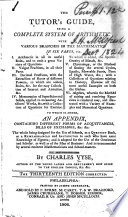 | Charles Vyse - Arithmetic - 1806 - 342 pages
...'•lean or Middle Terra. r. Geometrical Progression. 135 As 3. 6. 12. 24. 48. 12X 12=6X 24=48 X 3= 144. In Geometrical Progression the same five Things are to be observed as in Arithmetical Progression, viz. 1. The first Terra. 2. The last Term. 3. The Number of Terms. 4. The Ratio. 5. The... | |
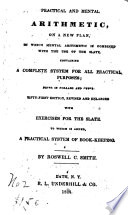 | Roswell Chamberlain Smith - 1814 - 300 pages
...Progression there are reckoned 5 terms, any three of which being given, the remaining two may b* found, viz. 1. The first term. 2. The last term. 3. The number of terms. 4. The common difference. 5. The sum of all the terms. Tht First Term, the Last Term, and the Number of Tema,... | |
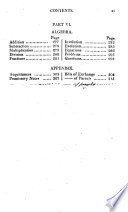 | Charles Vyse - Arithmetic - 1815 - 340 pages
...means equally distant from the said mean or middle term. As 3. 6. 12. 24. 48. " 12x12=6x^4=48x3 = 144. In geometrical progression the same five things are to be observed as in arithmetical progression, viz. 1. The first term. 2. The last term. 3. The number of terms. 4. The ratio. 5. The... | |
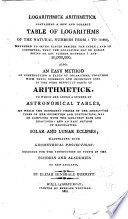 | Arithmetic - 1818 - 264 pages
...EXTREMES. Any three of the five following terms being given, the oth^p two may be readily found. ' ', 1. The first term. . . 2. The last term. 3. The number of terms. 4. The comtnpn difference. 5. The sum of all the terms. PROBLEM I. The first term, the last term, and the... | |
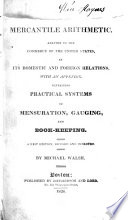 | Michael Walsh - Arithmetic - 1828 - 318 pages
...extremes, or any two means, equally distant from the mean : As 2, 4, 8, 16, 32, where 2X32= 4X16=8X8=64. In Geometrical Progression the same five things are...The equal difference or ratio. 5. The sum of all the term*. NOTE. As the last term in a Jong series of numbers, is тегу tedious to come at, by continual... | |
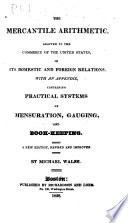 | Michael Walsh - Arithmetic - 1828 - 312 pages
...extremes, or any two means, equally distant from the mean : As 2, 4, 8, 16, 32, where 2X32= 4X16=8X8=64. In Geometrical Progression the same five things are...first term. 2. The last term. 3. The number of terms. NOTE. Aa the last term in a long series of numbers, is very t«. dious to come at, bj continual multiplication... | |
 | Michael Walsh - Arithmetic - 1828 - 318 pages
...mean : As 2, 4, 8, 16, 32, where 2X32=s 4X16=8X8=64. In Geometrical Progression the same five thing* are to be observed, as in Arithmetical, viz. 1. The...number of terms. 4. The equal difference or ratio. NOTE. As the last term in a long aeries of numbers, is very tedious to come at, by continual multiplication... | |
 | Daniel Parker - Arithmetic - 1828 - 358 pages
...81>11 16X4>=64 27X3^=81 8X8) 9X9) Five particulars are requisite equally in Geometrical Progression as in Arithmetical ; viz. 1. The first term. 2. The last term. 3. The number of terms. 4. The common difference, от ratio. 6. The sum of all .the terms. JVbte. — To find the last term in a... | |
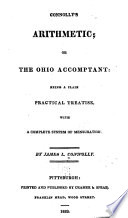 | James L. Connolly (mathematician.) - Arithmetic - 1829 - 266 pages
...2x32 = 64, and 4X16 = 64. The five things in arithmetical progression are to be pttstrved here also. 1. The first term. 2. The last term. 3. The number of terms. 4. The common difference, or ratio. 5. The sum of all the terms. As the last term, in a long series of numbers,... | |
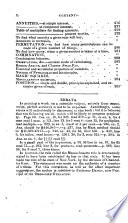 | Frederick Augustus Porter Barnard - Arithmetic - 1830 - 308 pages
...Arithmetical Progression. Any three of the five following terms being given, the other lico may be found. 1. The first term. 2. The last term. 3. The number of terms. 4. The ratio. 5. The sum of all the terms. 1. A man bought 5 sheep, giving $1 for the first ; $3 for the second... | |
| |